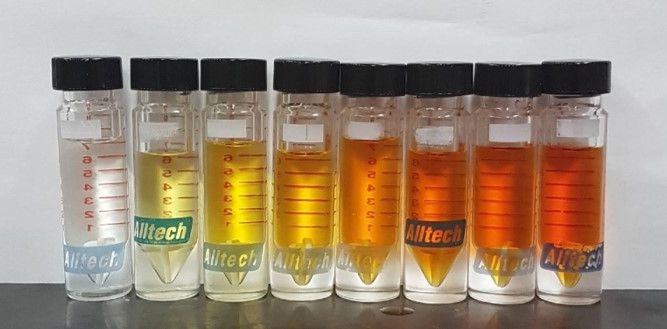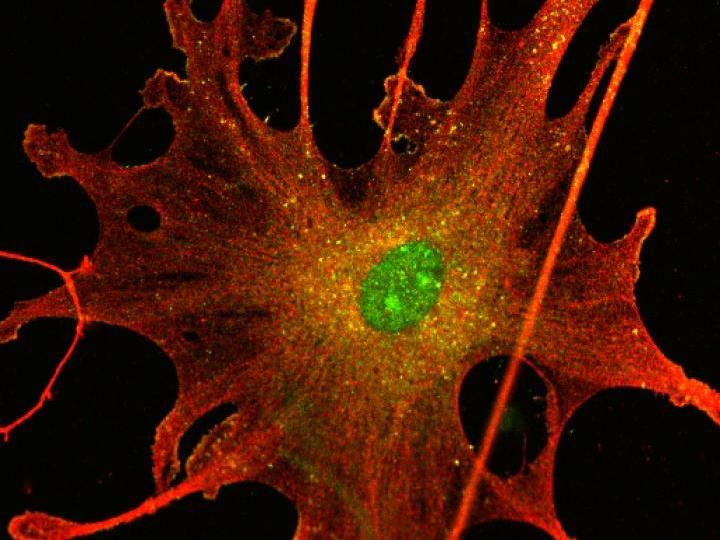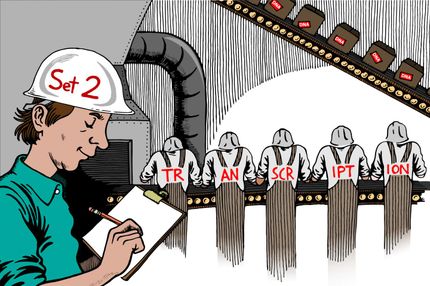Anti-cancer gene discovered: perspective for therapy
Starting with the tiny fruit fly, and then moving into mouse and human patients, researchers at VIB connected to the Center for Human genetics (K.U.Leuven) showed that the same gene suppresses cancer in all three. Reciprocally, switching off the gene leads to cancer. The scientists think there is a good chance that the gene can be switched on again with a drug. They report their findings in PLoS Biology.
All of us begin our lives as one cell, which divides into two, four, eight … into a human of a few billion cells. Almost all cells in an adult human – skin cells, liver cells, eye lens cells, nerve cells, insulin-producing cells etc – are highly specialized to perform a specific function. They are no longer capable of taking on another task: when a skin cell divides, you get more skin cells. During the growth from an embryo to an adult human, the cells become more and more differentiated. Cancer cells are an exception to that rule: they are much less specialized, and feel at home in different places in the body. Researchers have long believed that cells must take the last step in their specialization to be better protected from turning into cancer cells. However, this was not proven in a living organism.
Wouter Bossuyt from the Group of Bassem Hassan and their fellow VIB researchers at K.U.Leuven, now demonstrate with fruit flies that master control genes steering the specialization step indeed inhibit tumor formation. The specific example the VIB scientists used, are the ones biologists call the Atonal genes. These genes are very similar to each other in all species, from flies to humans. With mice, and in collaboration with colleagues from the United States, they showed that loss of one of those genes, Atonal homolog 1 or ATOH1, causes colon cancer. The gene regulates the last step in the specialization to epithelial cell of the colon. Humans with colon cancer frequently have an inactivated ATOH1 gene, the researchers observed.
The researchers could – in a test tube – reactivate the gene in human colon cancer cells. The tumor cells stopped growing and committed suicide. Since they were able to switch the gene on with a reasonably simple chemical, this opens possibilities to one day perhaps switch the gene back on in living patients. It will be very important in the future to study in detail how exactly ATOH1 does performs its anti-cancer job
Original publications: Bossuyt et al., "Atonal homolog 1 is a tumor suppressor gene"; PLoS Biology 2009.
Bossuyt et al., "Atonal proneural transcription factor links differentiation and tumor formation in Drosphila"; PLoS Biology2009.
Most read news
Other news from the department science

Get the life science industry in your inbox
By submitting this form you agree that LUMITOS AG will send you the newsletter(s) selected above by email. Your data will not be passed on to third parties. Your data will be stored and processed in accordance with our data protection regulations. LUMITOS may contact you by email for the purpose of advertising or market and opinion surveys. You can revoke your consent at any time without giving reasons to LUMITOS AG, Ernst-Augustin-Str. 2, 12489 Berlin, Germany or by e-mail at revoke@lumitos.com with effect for the future. In addition, each email contains a link to unsubscribe from the corresponding newsletter.
Most read news
More news from our other portals
Last viewed contents
VWR International, LLC, Acquires AMRESCO Inc.

Industry-ready process makes plastics chemical from plant sugars






















































